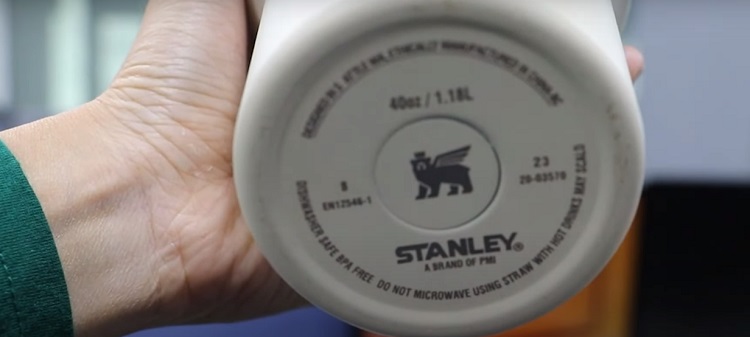Initially celebrated on social media for their popularity, Stanley cups have now garnered attention due to concerns over potential lead content.
Videos circulating on platforms like TikTok depict individuals utilizing lead testing kits on their Stanley cups and similar travel flasks.
Certain brands of travel drinking cups, including the widely acclaimed Stanley brand, may incorporate lead within the base as part of the vacuum insulation.
Pacific Market International, the manufacturer of Stanley cups, asserts that the lead is encapsulated within the tumbler’s structure, situated beneath a stainless steel layer designed to shield consumers from any potential lead exposure.
Social Media Stirs Concerns Over Lead in Stanley Cups

Concerns are mounting on social media as individuals contemplate the potential hazards associated with lead exposure.
The toxic nature of this metal can result in various health issues, including kidney problems, anemia, reproductive complications, and developmental issues, as outlined by the US Centers for Disease Control and Prevention.
The ubiquity of Stanley cups intensifies these concerns.
These popular tumblers, available in a variety of colors and capable of holding up to 40 ounces of water while remaining car cup holder-friendly, have evolved into both a status symbol and a wellness essential.
Aligned with the “clean girl” beauty trends promoting hydrated, natural skin, Stanley cups are now prevalent among beauty bloggers, parents at school pickups, and even featured on the Christmas wish lists of numerous children in the past year.
Instances of children facing peer bullying for using cups from other brands have been reported by some parents.
Acknowledging the popularity of Stanley cups, Jane Houlihan, Research Director for Healthy Babies, Bright Futures—an alliance dedicated to reducing babies’ exposure to neurotoxic chemicals—urges a degree of caution in light of potential health implications.
Lead Recalls: Beyond Stanley, Multiple Brands Affected
Lead usage is not exclusive to the Stanley brand; various other brands have faced recalls for employing this material, as indicated by the US Consumer Product Safety Commission.
In November, approximately 84,000 Tiblue Stainless Steel Children’s Cups and 3,600 Klickpick Home Children’s Cup Sets, available on Amazon, were recalled by the federal agency due to the presence of “an accessible solder bead with levels of lead that exceed the federal lead content ban.”
During the same month, 1,600 PandaEar and 200 Laoion stainless steel children’s cups, also sold on Amazon, underwent recall for identical reasons, as reported on the CPSC website.
